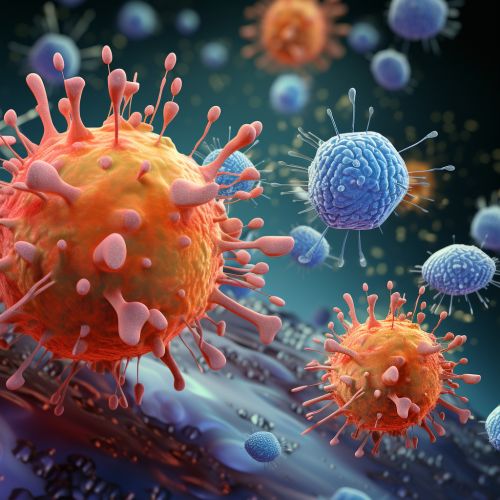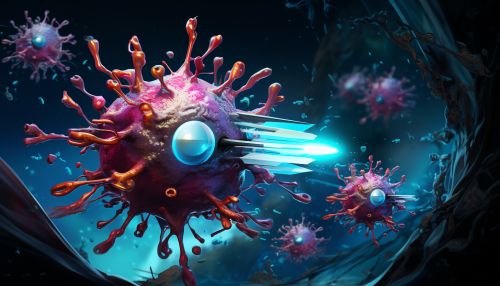Immunotherapy in Cancer Treatment
Introduction
Immunotherapy, also known as biologic therapy, is a type of cancer treatment that boosts the body's natural defenses to fight cancer. It uses substances made by the body or in a laboratory to improve or restore immune system function. Immunotherapy may work by stopping or slowing the growth of cancer cells, preventing cancer from spreading to other parts of the body, or helping the immune system increase its effectiveness at eliminating cancer cells.


Types of Immunotherapy
There are several types of immunotherapy, including monoclonal antibodies, immune checkpoint inhibitors, cancer vaccines, and non-specific immunotherapies.
Monoclonal Antibodies
Monoclonal antibodies are immune system proteins produced in the lab that can bind to specific targets on cancer cells. Some monoclonal antibodies mark cancer cells so they will be better seen and destroyed by the immune system.
Immune Checkpoint Inhibitors
Immune checkpoint inhibitors are drugs that help the immune system recognize and attack cancer cells. Some cancer cells have proteins that help them hide from the immune system. Immune checkpoint inhibitors block these proteins, allowing immune cells to recognize and kill the cancer cells.
Cancer Vaccines
Cancer vaccines are substances introduced into the body to cause an immune response against certain diseases. We usually think of vaccines as being given to healthy people to help prevent infections. But some vaccines can help prevent or treat cancer.
Non-Specific Immunotherapies
Non-specific immunotherapies help to boost the immune system in a general way, which can still help the immune system attack cancer cells.
How Immunotherapy Works Against Cancer
Immunotherapy can work in different ways, either by stimulating the immune system to work harder or smarter to attack cancer cells, or by providing the immune system with additional components, such as man-made immune system proteins.


Side Effects of Immunotherapy
Immunotherapy can cause side effects, which can affect people in different ways. The side effects you may have and how they make you feel will depend on how healthy you are before treatment, your type of cancer, how advanced it is, the type of immunotherapy you are getting, and the dose. Doctors and nurses cannot know for certain when or if side effects will occur or how serious they will be.
Future of Immunotherapy
The future of immunotherapy looks promising as it continues to be a rapidly growing field of research. Scientists are exploring new ways to enhance the power of the immune system to fight cancer, and many clinical trials are currently underway to test new immunotherapy drugs and treatment strategies.
